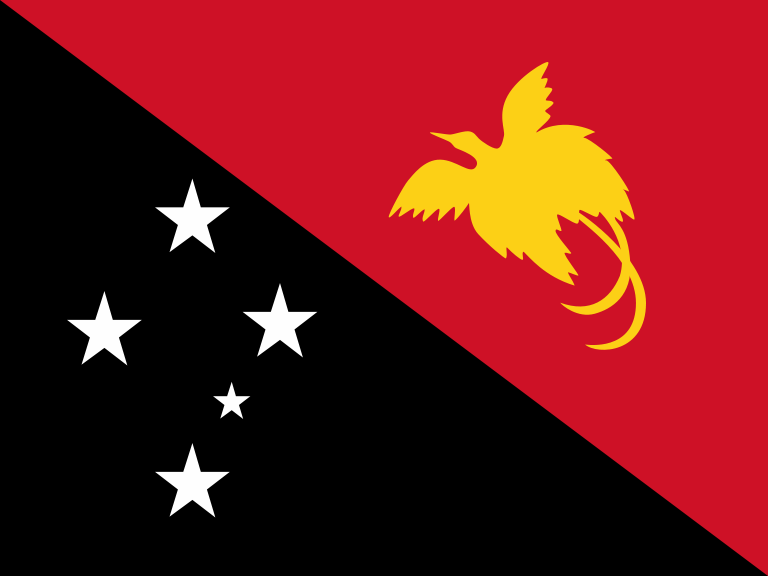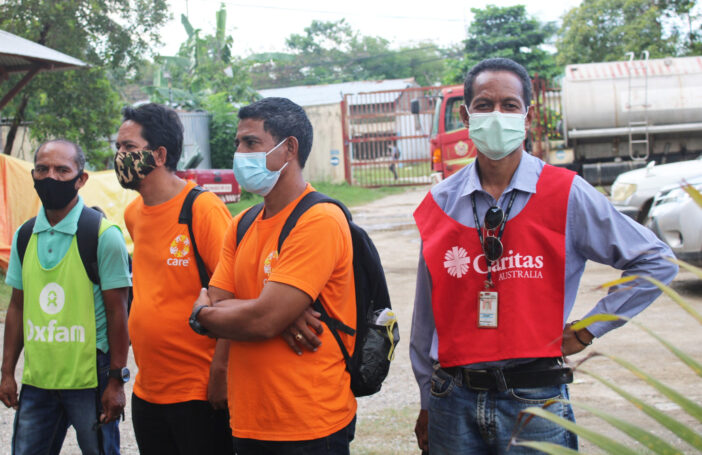PNG’s founding fathers searched internationally and domestically, in the oracles of our ancestors and in the chronicles of the established nations to determine a way forward for the nation that they were prepared to give their all for.
They wanted the citizens of PNG to be holistically strong, equal and to participate in the nation’s development. They wanted them to be proud and patriotic in their national identity, environmentally conscious and independent, respectful, appreciative and to adopt PNG ways and incorporate them into modern ways. That vision was incorporated into PNG’s constitution, the legal framework of the new nation that was born 37 years ago in 1975.
37 years on, how has the nation of PNG developed in light of the vision of her founding fathers? Here is a sector by sector snapshot of PNG today.
Education
The O’Neill/Namah government has recently introduced free education from elementary school to grade 12. However, classrooms and teacher accommodation are either rundown or of an insufficient quantity. Access to basic supplies and utilities are non-existent and many facilities are remote and too expensive to service. Free enrollment will place additional demands on these facilities as children progress through grades. And, because of the lack of basic services such as accommodation in remote areas, the trend of teachers avoiding, refusing, or deserting remote areas, rural schools and the public education sector in favour of more lucrative jobs in urban centres will continue.
The capacity building in higher educational, technical and vocational schools to compliment an increased demand for output is simply not there yet. While Liquid Natural Gas (LNG) projects promises jobs, they are mostly for top graduates who constitute a mere 20-30 percent of those seeking work. What will other job seekers do in a saturated market where there is up to a 60 percent unemployment rate?
Health
The government has earned the public’s accolades for enacting free public healthcare but the trend over the past ten years has been to close down aid posts due to a lack of medicine and orderlies. Delivery of medicines is often delayed, making them out of date and useless, and continues to be an administrative and logistical challenge.
International pushes on HIV/AIDS prevention and awareness and immunisation programs for tetanus and smallpox steal the spotlight from silent,widespread killers like TB, malaria and pneumonia.
Transport
In air transport, the closure of a number of air strips as well as safety concerns surrounding access to functional air strips, combined with the number of third level airlines operating in PNG, means that access to much of our hinterland is closing up.
In sea transport, even though 15 out of 20 provinces are maritime provinces, most of our jetties and wharves are deteriorating and in need of repair. Government trawlers, once the pride of these provinces and synonymous with the presence and service of government, are just memories. Their replacement with motorised dingies and coastal shipping services lacking adequate regulatory oversight have been fatal for seafarers. In November last year between 100-160 perished in the sea surrounding my province of Morobe.
In land transport, PNG still struggles to maintain 10,000 km of national highways. 17,000 km are provincial roads. Funds distributed to provinces are used to build new roads at the cost of maintaining those that already exist. In my own district of Lae, large expenditure on road construction has occurred without design, scoping or monitoring by the works department. The roads are yet to completed and will require more funding to do so.
Public utilities
PNG is held to ransom by debt-ridden and incapacitated state-owned enterprises caught between survival and political priorities while attempting to provide electrical, water, broadcasting, works and telecommunication services. State-owned companies like Telecom PNG Limited, PNG Power Limited and the National Broadcasting Corporation are performing far below their capacity, leaving district capitals ineffectively serviced and requiring government funding for services.
Former Prime Minister Sir Mekere Morauta established the Independent Public Business Cooperation (IPBC) as a warehouse to prepare state-owned assets for sale. The IPBC was hijacked by the Somare government and used to fund the state’s equity in LNG. This anomaly has left taxpayers with an 800 million Kina debt.
PNG today
These snapshots are enough to cause our founding fathers to turn in their graves.
In cooperation with the ANU, the PNG National Research Institute published a report in late-2010 (‘Monograph 41: Papua New Guinea’s economic performance between 1975 and 2008’, available here) which identified the following failings in PNG’s development performance:
- Economic growth insufficient to impact households;
- Poor performance on social indicators compared with other Pacific countries;
- An absence of quality data for PNG;
- Development plans, whilst in place, not well resourced or linked with other plans and poorly implemented;
- Lack of fiscal discipline resulting in overspending, unproductive spending and lack of adherence to planned priorities;
- Reliance on minerals and agriculture – need to diversify to reduce economic shocks; and
- Political instability and poor governance hamper development and lead to a decline in public services.
It is my view that PNG is in such turmoil due to a lack of firm and effective leadership. During the 20 years that I have spent in parliament, serving 12 years in opposition and 8 years in government, I have come to the conclusion that the solution to PNG’s problems rests squarely on the type, character, experience and the professional capabilities of our leaders. PNG needs good leadership to extricate itself from the damning paradox of being a poor but resource rich country.
To quote Dr. Martin Luther King:
May I stress the need for courageous, intelligent and dedicated leadership. Leaders of sound integrity. Leaders not in love with publicity, but in love with justice. Leaders not in love with money, but in love with humanity. Leaders who can subject their particular eagers to the greatness of the particular course they are pursuing.
PNG’s leadership must ascertain and determine for themselves, with brutal honesty, what their purpose and motivation for leading is. A leader is in a position of power either to help people or for financial gain. If it is for financial gain, then the honourable way is to bow out and move into the private sector. If it is for the people, then we have to take a hard look at our development statistics.
Reversing and addressing development trends is the real task for PNG’s leadership. Good leadership – from the nerve centre in Port Moresby down to our remote villages – is vital to ensuring that, with the LNG booming and promising more money, our population of 7 million growing, increased pressures on delivering services in education, health, infrastructure and public services, Papua New Guinea takes the right turn at this new crossroad we have reached and does her founding fathers proud.
Bart Philemon has been Treasurer and Minister for the Public Service, Papua New Guinea. This post is a summary of his presentation (video available here) to the 2012 Pacific Update.






This article, although clearly articulating the issues does not go all the way in outlining the cause of them. Bart pulls the punches when discussing the current leadership and the lack of integrity of the leaders. He also, ignores the requirement for an independent assessment of the public works, education and health industries in PNG. Although there is a drive by the current PM to push education by making it fee free he does not address the issues outlined by Bart in the lack of infrastructure and the movement of teachers away from the rural areas to the cities. This movement is not just limited to the professionals which results in the rascal issue due to the lack of employment opportunities for the lower educated people.
In the first 10 years of independence PNG was trumpeted as a reasonable success in the transfer of leadership from a colonial master to the reasonably law abiding, development orientated government. However, the seeds of the downfall of the country were being laid even then by decreasing expenditure on education, health and infrastructure and the transferral of these funds to the select few.
PNG is a very rich country in terms of minerals and agriculture but it has not learnt to use this wealth for the good of the people rather using it for the good of the few.